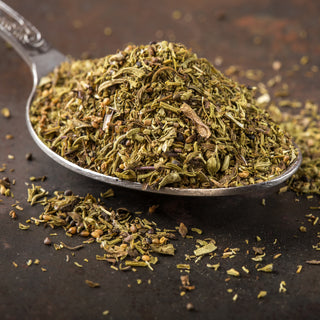Seasoning Tips That Will Elevate Your Cooking
Seasoning can make or break a dish. Too much salt, herbs, or spices can be overwhelming; too little, on the other hand, can make your dish completely bland. But when you get just the right amount, your dish will taste incredibly good—as if it’s prepped and cooked by a chef.
So if you want to elevate your daily cooking, here are six seasoning tips you should know.
1. Incorporate herbs at the right time.
Dried herbs, like rosemary, sage, oregano, thyme, and marjoram, are best used early in the cooking process. That gives dried herbs time to infuse their flavor into your dish. So don’t hesitate to incorporate your dried herbs while the sauce or stew is still simmering. What about fresh herbs? You can save them for the last minute. They are already bursting with flavors; you can simply add your parsley or basil while finishing your salad or pasta dish.
2. Don’t shy away from seasoning cold foods generously.
The cold temperature can dull flavors and aromas. That’s why it’s important to season cold foods generously. For instance, instead of simply adding dressing to your salad, sprinkle a pinch of salt to make the flavors shine. Need to chill a dish before serving it? Season it with a normal amount of salt, pepper, and other spices, but make sure to taste it and add more seasoning before serving it. That way, you avoid overdoing the seasoning on cold foods.
3. Toast your whole spices before grinding them.
Need to add ground spices to your dish? It’s best to buy ground cardamom or cinnamon. But if you only have whole spices at home, be sure to toast them before grinding them. Toasting elevates their flavor, which can add aroma and complexity to your dish. Simply place your whole spices in a pan over medium-low heat. Then, toast and swirl them until they’re fragrant. Once you smell the aroma, remove them from the pan to keep them from burning.
4. Swap red pepper flakes for a more flavorful spice.
Red pepper flakes are often the go-to seasoning for adding heat, but they don’t add much flavor to your dish. Swap them for spices like Aleppo pepper instead. Aleppo pepper flakes can add moderate heat while giving hints of citrusy flavors and mild sweetness and tanginess to your dish. Try using Aleppo pepper instead of regular red pepper flakes on your pasta dish, chicken marinade, or salad dressing, and you will quickly taste the difference.
5. Use coarse salt when seasoning meat.
When seasoning meat, use coarse salt like kosher salt instead of table salt. The larger grains of coarse salt distribute more easily. Plus, they cling well to the meat’s surface. Also, season your favorite meat cuts a few hours in advance. That way, the salt has enough time to penetrate the meat, keep it moist, and break down the proteins that can make it tough.
6. Don’t be afraid to make adjustments to your seasonings.
If your seasonings go awry, you can still make adjustments to salvage the dish. In most cases, the overpowering spice or ingredient can be masked by adding another ingredient, herb, or spice from the opposite end of the flavor spectrum. Here are some examples:
● If the food you’re cooking is too salty, try adding an acid, like vinegar or lemon, or a sweetener, such as sugar, maple syrup, or honey.
● If it’s too sweet, incorporate an acid or seasonings, like a dash of cayenne or chopped fresh herbs.
● If it’s too acidic or spicy, add a sweetener or fat, such as cream, cheese, or butter.

